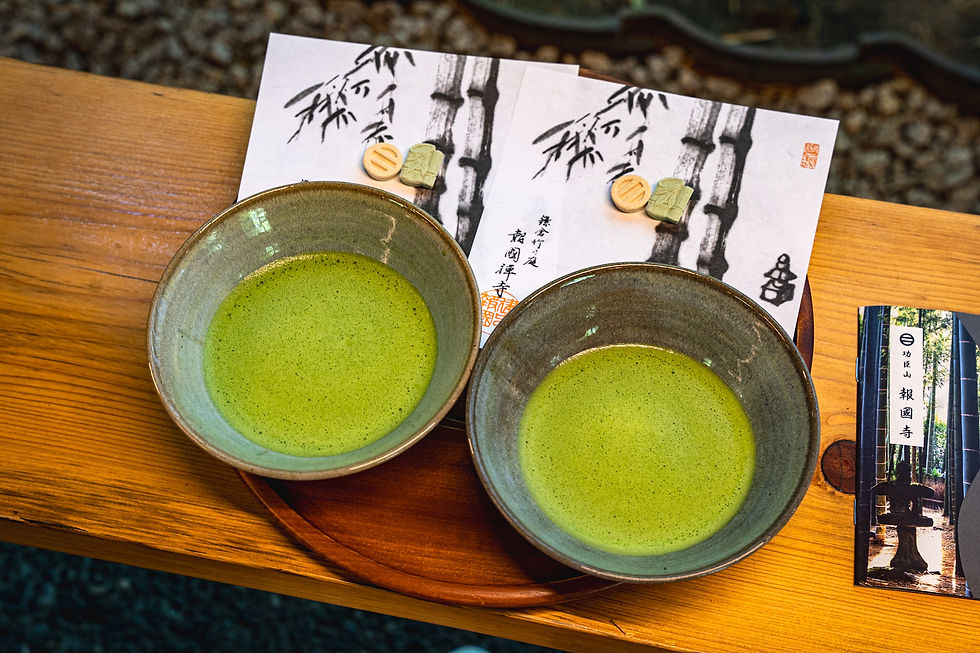Hokokuji Bamboo Forest: Discover the Historic Bamboo Grove in Kamakura Just Beyond Tokyo
Kamakura, though often overshadowed by Japan’s more famous capitals—Tokyo, Nara, and Kyoto—played a significant role in the country’s history. It served as an unofficial capital during the time of the first samurai shogun, Minamoto no Yoritomo, who established his government there in 1192.
I remember the first time I heard about Kamakura. I imagined it as a distant, mountainous destination, one that would require careful planning and a long journey to reach.

Little did I know, this quiet haven was just a short train ride away from the heart of Tokyo. Each visit reminds me of the incredible diversity Japan offers.
On one of my recent trips to Kamakura, I discovered Hokokuji’s Bamboo Forest, a historic gem in a quiet part of the city.

The Rich History of Hokokuji Bamboo Forest and its Temple
Hokokuji Temple was founded in 1334 by Ashikaga Takauji, a prominent samurai general and the first shogun of the Ashikaga Shogunate. Takauji, who was instrumental in establishing the Ashikaga shogunate, built this temple as a tribute to his family and a place of spiritual reflection.

Walking along the vicinity, you'll immediately notice a small Japanese rock Zen garden. It features carefully arranged stones and gravel, symbolizing mountains, islands, and animals that promote meditation in Japanese culture.

The main hall of the temple was rebuilt after it was destroyed by fires due to frequent wars. The reconstruction occurred during the era of the 15th priest, Koyo Shonin. Additionally, it was rebuilt again after the Great Kanto Earthquake in 1923 and houses a statue of Shakyamuni.
A Peaceful Escape: Walking Through Hokokuji Bamboo Forest
As soon as I entered the bamboo forest, I was immediately enveloped by a sense of peace, hearing the sounds of cicadas in the midst of summer, along with the chirping of birds and the gentle rustling of the surrounding leaves.
The bamboo grove at Hokokuji is more than just beautiful; it’s deeply symbolic, especially for Japanese people.

In Japanese culture, bamboo groves symbolize resilience and strength, purity and simplicity, protection and good luck, harmony with nature, and serve as a profound source of cultural and artistic inspiration—qualities that are admired in Japanese tradition. The shaded atmosphere creates a perfect setting for meditation and reflection.
Strolling along the narrow trail amidst a thousand bamboo trees, I was reminded of my favorite Japanese concept, "Komorebi, (木漏れ日)" which inspired the recent film "Perfect Days." Komorebi, translated to English, means "the sunlight as it filters through the trees."
However, this translation doesn't do justice to the Japanese meaning, which embodies the idea of pausing to appreciate the beauty of nature, being at peace, and being present in the moment.
Kyukoan Tea House: A Quiet Sanctuary Amidst Its Bamboo Grove
In my opinion, what sets Hokokuji apart from other bamboo groves in Japan is not only the solemnity of the place—but its tea house, ‘Kyukoan’, where you can breathe in and relax with the sounds of nature.
Upon entering the tea house, the staff greeted us with calm, welcoming voices, offering green tea (matcha) and traditional Japanese sweets (wagashi), along with a piece of paper as a souvenir.

While sipping my matcha and looking carefully beyond the narrow paths of the bamboo groves, I saw three man-made shallow caves lined up, which served as tombs for important figures such as the Ashikaga family from 1284-1328.
Unlike the other famous bamboo groves in Japan where crowds often fill the paths, this place feels more personal, like a secret retreat.
Discovering the Perfect Retreat Away From the City
When I first moved to Tokyo, the city's vibrant energy was both exhilarating and overwhelming for me. The fast-paced activity, the busy streets—it’s a world that never seems to stop. But as much as I loved the convenience and excitement of city life, there were moments when I craved an escape, a place where time slowed down and things felt calm.
For me, Hokokuji’s bamboo forest is the perfect place for that kind of getaway.
It quickly became a retreat, a place close to the city where I could come back, unplug, and reconnect with nature. It felt like stepping into a different world, where the noise of the city faded into the sounds of nature.

The contrast between the bustling city and the peacefulness of Hokokuji in Kamakura was one of the reasons it became my newfound favorite escape.
Find your ideal escape with Untold Japan's expertly curated tours. Breathe in the fresh air and find the beauty and solace in Japan’s peaceful landscapes.
You can reach out here to start planning your unforgettable journey.






Comments